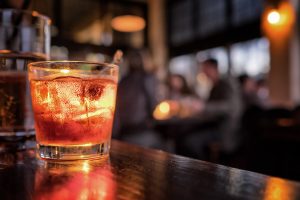 by HWC Managing Partner Josh Wright
by HWC Managing Partner Josh Wright
The Alabama Dram Shop Act has been around since 1909, and in pertinent part, has been in place to protect “every wife, child, parent, or other person who was injured in person, property or means of support by any intoxicated person.” Many bars, restaurants, and convenience stores do things the right way, and follow the rules with no liability; those that don’t have answered to Ala. Code Sec. 6-5-71 and well-established Alabama case law for more than 100 years.
In the name of reduced insurance costs for bars, restaurants, and convenience stores, and to increase insurance competition in Alabama, the retailers lobby pushed to change the Alabama Dram Shop Act in the 2023 Legislative Session. But, to what end? The new law changes the proof that is necessary for Alabama victims to pursue alcohol-related dram shop claims against offending bars, restaurants, and convenience stores that break the rules. So, drunk drivers, and those that serve them just got a small win over Alabama’s drunk driving victims.
Not to worry though. As described in detail below, with the right dram shop lawyer at your side, victims will unquestionably still prevail and have their day in court. The 2023 changes to the Alabama Dram Shop Act do not markedly change the legal landscape for drunk driving victims.
Background on the Bill
In the 2023 Legislative Session, Alabama legislators—led by a misunderstanding of the law by the Alabama Retailer’s Association—proposed an amendment to the Dram Shop Act, Ala. Code Sec. 6-5-71(1975), in a bill titled “SB104.” The Bill passed the House and Senate in early April 2023, and ultimately was signed into law by Governor Ivey on April 19, 2023.
The intent of the bill and ultimately the new law—according to the retailer proponents—was to make sure (1) Alabama was no longer viewed as as “strict liability” [1] dram shop state, and (2) to help reduce liquor liability insurance costs for retail establishments. As is often the case, however, bill proponents don’t always understand Alabama law when they push new bills on our legislators, and often fail to recognize the unintended consequences of their overreaching.
For example, Alabama has never been a strict liability Dram Shop Act state. That was pointed out several times in the negotiations over SB104, with accompanying uncontroverted case law to support the victim’s side.
 Moreover, Alabama already has one of the more archaic dram shop statutes in the Southeast that includes extremely low liability insurance limits for bars, restaurants, and convenience stores. As an example, we have not changed the insurance limits a bar, restaurant, or convenience store must hold since 1986. It was $100,000 in 1986; it is $100,000 today. And, given the catastrophic nature of most drunk driving accidents, such limits are entirely unfair to injured victims and their families. One of the unintended consequences of reducing insurance premiums and increasing insurance company competition in Alabama may very well be a necessary increase in the liability limits.
Moreover, Alabama already has one of the more archaic dram shop statutes in the Southeast that includes extremely low liability insurance limits for bars, restaurants, and convenience stores. As an example, we have not changed the insurance limits a bar, restaurant, or convenience store must hold since 1986. It was $100,000 in 1986; it is $100,000 today. And, given the catastrophic nature of most drunk driving accidents, such limits are entirely unfair to injured victims and their families. One of the unintended consequences of reducing insurance premiums and increasing insurance company competition in Alabama may very well be a necessary increase in the liability limits.
The Law Changes
The 2023 changes to Ala. Code Sec. 6-5-71 include the following:
- Proof that a retailer “knowingly sells, furnishes, or serves alcoholic beverages to an individual contrary to provisions of law” is now required as a level of proof against the offending retailer. the “knowingly sells” language was included with the intent of adding an extra hurdle a victim must jump over to have success in litigation. The old law did not require proof that a bartender, for example, “knowingly” overserved a patron, if it could be proven that such sale was “contrary to provisions of law,” which is well settled in the Alabama ABC Regulations and Alabama case law.
- The preamble of the new law now has a starting presumption—regardless of how drunk a patron becomes when they are served—that the retailer ‘shall not thereby become liable for injury, death, or damage caused by or resulting from the intoxication of that individual, including injury or death to other individuals.” This presumption is new to the law and shoulders an injured victim with unnecessary requirements of proof to hold a drunk driver, and retail bar, liable under the law. Presumptions of “no liability”—legislatively speaking—are unheard of in the law.
- The causation standard required to be proven in the old law was changed to “proximate cause,” from what was in the old law known as “in consequence of” the sale of alcohol. Again, this is another hurdle added to the existing law that an injured victim must jump over to win a case of a drunk driver that may be 2 or 3 times the legal limit of BAC.
- Legislative history was added to the bill to say that the McIsaac v. Monte Carlo Club, Inc. case (Alabama Supreme Court case from 1991) is not accurate law to the extent it is being interpreted to mean that Ala. Code Sec. 6-5-71 is a “strict liability” statute any longer. McIsaac is misunderstood by non-dram shop lawyers as is subsequent case law over the last 30 years since McIsaac. Ala. Code Sec. 6-5-71 was never a “strict liability” statute in the first place.
- The new statute confirms what has been long-standing law in Alabama, that a trier of fact (e.g. judge and jury) must not speculate when interpreting facts presented in a case. Again, that has always been the law in Alabama.
The Good News
Lawyers at Hollis Wright, along with several others, fought tirelessly to limit the impact these changes would have on Alabama drunk driving victims for future and inevitable alcohol-related accidents. Many of our proposed amendments to SB104 were accepted and added to the new Alabama Dram Shop Act.
For example, a definition of “knowingly” was added to the new law. However, under that definition, there is liability for servers that “knew or should have known under the circumstances,” that a patron was intoxicated when served. With the addition of that definition, the standard to prove a dram shop case really has not changed with the new law. Namely, with the old law: if under the “totality of the circumstances,” a patron appeared drunk, a retailer was “on the hook” for overserving that patron. That could be proven by objective evidence of intoxication versus a subjective belief in the mind of the bartender that the person was drunk. Under the new law, the “should have know under the circumstances” definition allows lawyers to still prove their claim with the same objective evidence as the old law.
 Other amendment language added in the new law by experienced dram shop lawyers at Hollis Wright also mitigated the impact of the new law on drunk driving injury victims. (e.g., the presumption of no liability sentence that begins section (a) of the law, includes a “provided, however” phrase at the end that eliminates the impact of the presumption.) Moreover, the impact of the new language in the law and decrease in liability premiums for retailers may very likely support the need to raise liability limits in Alabama over the coming years. If it is cheaper now to purchase insurance coverage for a retailer, with more insurers available to sell such coverage, the relative cost of procuring higher insurance limits has gone down. History shows us increased competition equals lower prices and broader coverages available for retailers.
Other amendment language added in the new law by experienced dram shop lawyers at Hollis Wright also mitigated the impact of the new law on drunk driving injury victims. (e.g., the presumption of no liability sentence that begins section (a) of the law, includes a “provided, however” phrase at the end that eliminates the impact of the presumption.) Moreover, the impact of the new language in the law and decrease in liability premiums for retailers may very likely support the need to raise liability limits in Alabama over the coming years. If it is cheaper now to purchase insurance coverage for a retailer, with more insurers available to sell such coverage, the relative cost of procuring higher insurance limits has gone down. History shows us increased competition equals lower prices and broader coverages available for retailers.
So, don’t be confused by this new law or the title of this blog (i.e. drunk drivers and retailers “won a small battle over drunk driving victims”). The “war” in protecting injured drunk driving victims is not over and has just begun. Educated and creative lawyers understand the old and new Alabama Dram Shop Act will still prevail in holding retailers responsible for not following the rules. Hollis Wright stands ready to do just that, and to litigate this new law before Courts all over the State with the intent of protecting drunk driving victims.
Need Help?
If you have been injured by someone who was overserved, ask one of the lawyers at Hollis Wright to review your Dram Shop case for free. We know the law; we helped amend and mitigate the impact of the new law on victims; we are ready to fight for you today! Call us at 844.LAW.TALK or reach us contact us online here for a FREE consultation about your case or referral.
[1] A legal theory that holds a defendant responsible for its actions regardless of its intent at the time of that action. In a strict liability case, a plaintiff must only prove that they were injured and the injury was caused by the defendant.
 Alabama Injury Law Blog
Alabama Injury Law Blog

